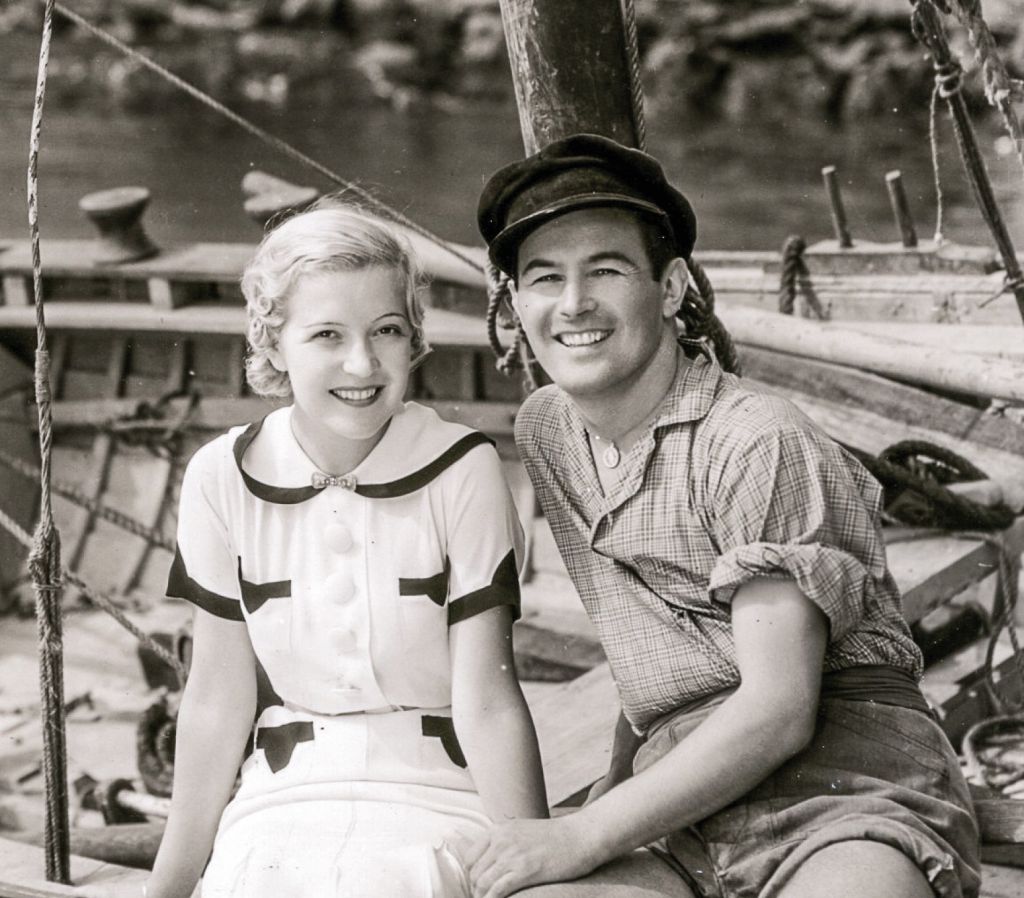Who doesn’t know them: Marta Eggerth and Jan Kiepura, the dream-couple of movies, opera, and operetta, the superstars of the mid-20th century. Their voices enthralled the masses, interwove multiple genres, and converted people to opera and operetta in an era where both were thought to have long been on their last legs. Their performances always drew media and political attention, and their charisma and aura were impossible to resist. Marta Eggerth and Jan Kiepura enchanted and enthused people on both sides of the Atlantic, and their unique timbre still moves people today.

Despite all this, the Hungarian soprano and the Polish tenor were forced to leave Austria—which they’d made their new home—following its “annexation” by Nazi Germany in 1938: Jan Kiepura had gone to New York in February 1938 for an engagement at the Metropolitan Opera, and while performing in Paris in September 1939 (concurrent with Germany’s surprise attack on Poland, which started the Second World War), the two concluded that a return to Vienna was out of the question. But they did take the vanished country of Austria and its Viennese flair with them to New York. The fate of these two singers was to be shared by countless artists, librettists, composers, and musicians, many of whom followed them into exile. Many others, however, were arrested, imprisoned, and murdered—often being subsequently forgotten.
The exhibition Mein Lied für Dich [My Song for You] —to open on 20 October 2020 with star tenor Ramón Vargas, Rector Ulrike Sych, and Austrian National Council President Wolfgang Sobotka; Franz Liszt-Saal at the mdw/Austrian Cultural Forum New York via live stream— presents the stage and film careers and the musical legacy of the dream-couple Eggerth and Kiepura, but it also highlights the fates of numerous allies, companions, and colleagues who were part of their appearances and their performing lives but ultimately denied a place in our collective memory by National Socialism.
Marjan Kiepura, the son of these two singers, has made available to the mdw’s exil.arte Center a large number of film programmes, concert programmes, and newspaper clippings associated with their careers in opera and operetta as well as photographic materials, paintings, and costumes. Eggerth and Kiepura’s films will likewise be shown in this exhibition.
Thanks to the available materials, the exil.arte Center was able to make out 150 personalities associated with Eggerth and Kiepura who were likewise persecuted and driven away by the National Socialists. These individuals, among them composers, directors, screenwriters, and singers, will also be featured. They include: Paul Abraham (composer of Viktoria und ihr Husar and Die Blume von Hawaii, exile in Paris, Cuba, and New York), Carl Alwin (conductor at the Vienna State Opera, exile in the USA and Mexico), Ralph Benatzky (composer of Im weißen Rössl, exile in Switzerland and in the USA), Robert Gilbert (composer, comedian, and author, exile in Paris and New York), Fritz Grünbaum (comedian, actor, and author, deceased in 1941 at Dachau Concentration Camp), Maria Jeritza (Kammersängerin of the Vienna State Opera and active at the Met in New York, exile in Hollywood and New York), Emmerich Kálmán (composer of Gräfin Mariza and Die Csárdásfürstin, exile in Paris and the USA), Charles Kálmán (son of Emmerich Kálmán, composer, exile in the USA), Erich Wolfgang Korngold (composer of operas and film music, two-time Oscar winner, exile in Hollywood), Lotte Lehmann (Kammersängerin of the Vienna State Opera, exile in New York and California), Fritz Löhner-Beda (librettist for composers including Franz Léhar [e.g., Das Land des Lächelns and Giuditta], murdered in 1942 at Auschwitz Concentration Camp), Paul Morgan (film actor and librettist, deceased in 1938 at Buchenwald Concentration Camp), Artur Rubinstein (pianist, exile in Hollywood), Mischa Spoliansky (composer of revues and film music, exile in England), and Billy Wilder (screenwriter and film director, exile in Paris and the USA).

